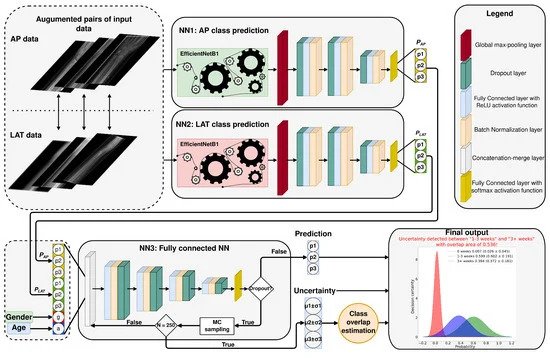
In clinical practice, fracture age estimation is commonly required, particularly in children with suspected non-accidental injuries. It is usually done by radiologically examining the injured body part and analyzing several indicators of fracture healing such as osteopenia, periosteal reaction, and fracture gap width. However, age-related changes in healing timeframes, inter-individual variabilities in bone density, and significant intra- and inter-operator subjectivity all limit the validity of these radiological clues. To address these issues, for the first time, we suggest an automated neural network-based system for determining the age of a pediatric wrist fracture. In this study, we propose and evaluate a deep learning approach for automatically estimating fracture age. Our dataset included 3570 medical cases with a skewed distribution toward initial consultations. Each medical case includes a lateral and anteroposterior projection of a wrist fracture, as well as patients’ age, and gender. We propose a neural network-based system with Monte-Carlo dropout-based uncertainty estimation to address dataset skewness. Furthermore, this research examines how each component of the system contributes to the final forecast and provides an interpretation of different scenarios in system predictions in terms of their uncertainty. The examination of the proposed systems’ components showed that the feature-fusion of all available data is necessary to obtain good results. Also, proposing uncertainty estimation in the system increased accuracy and F1-score to a final 0.906±0.011 on a given task.